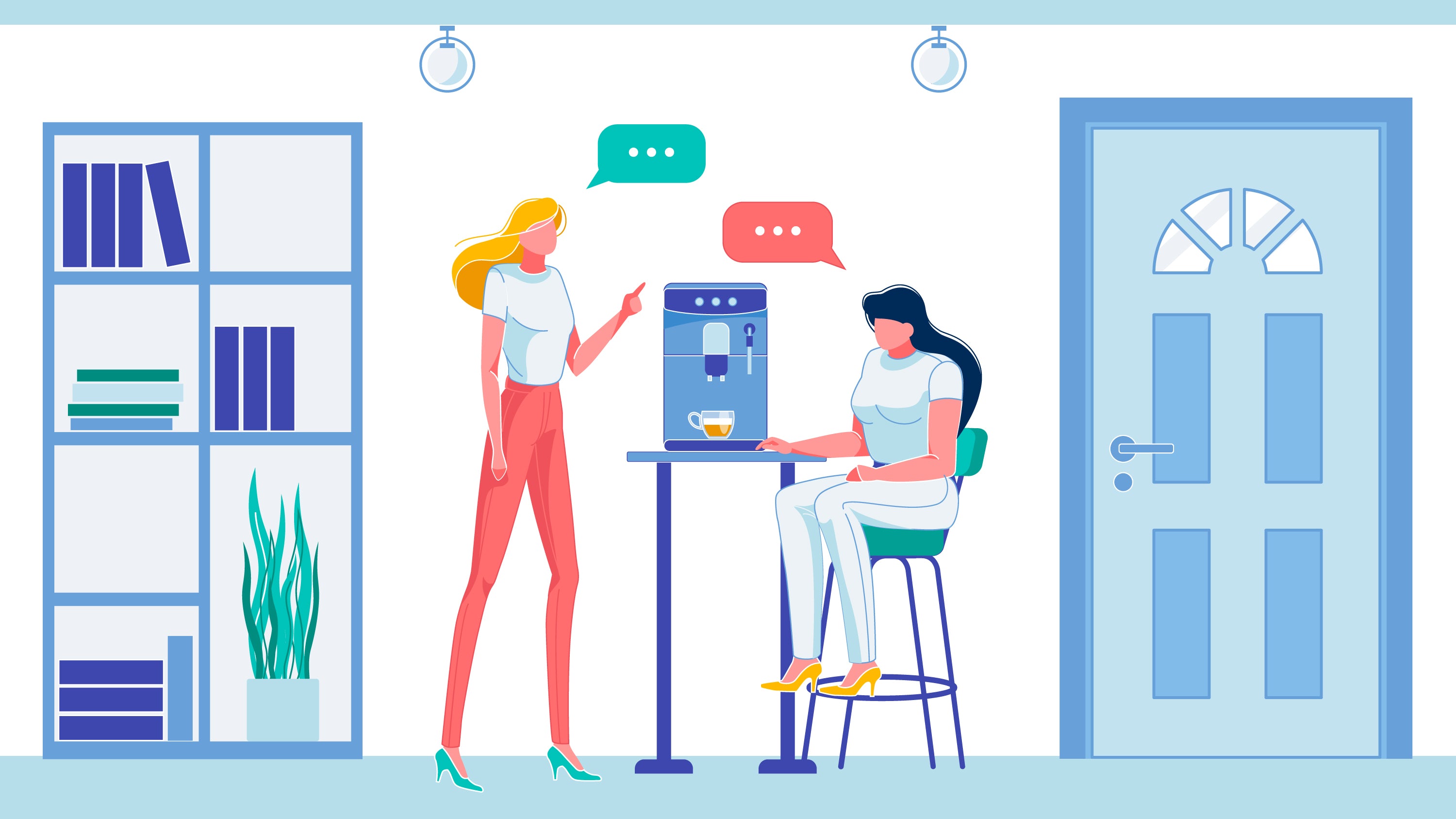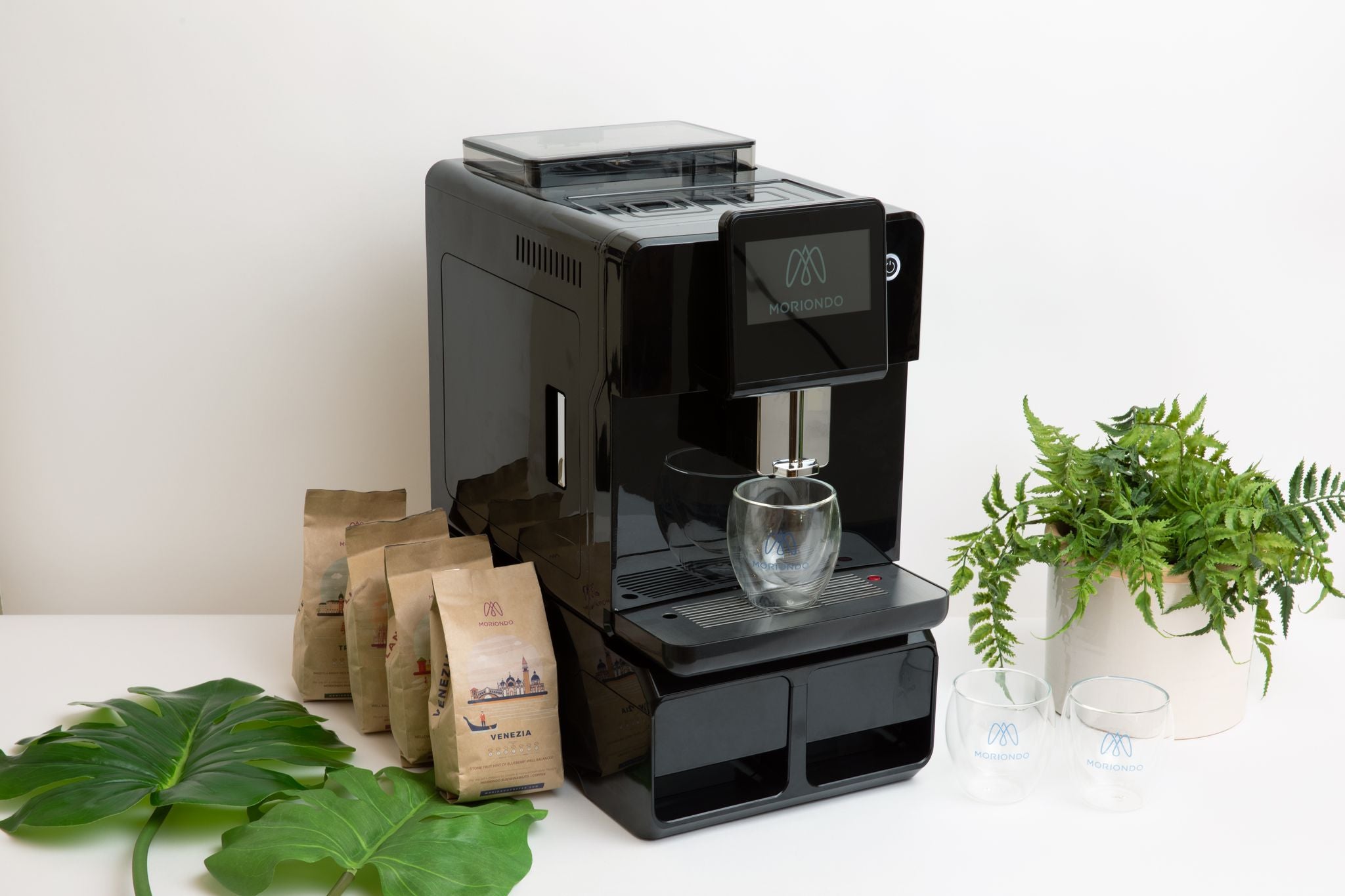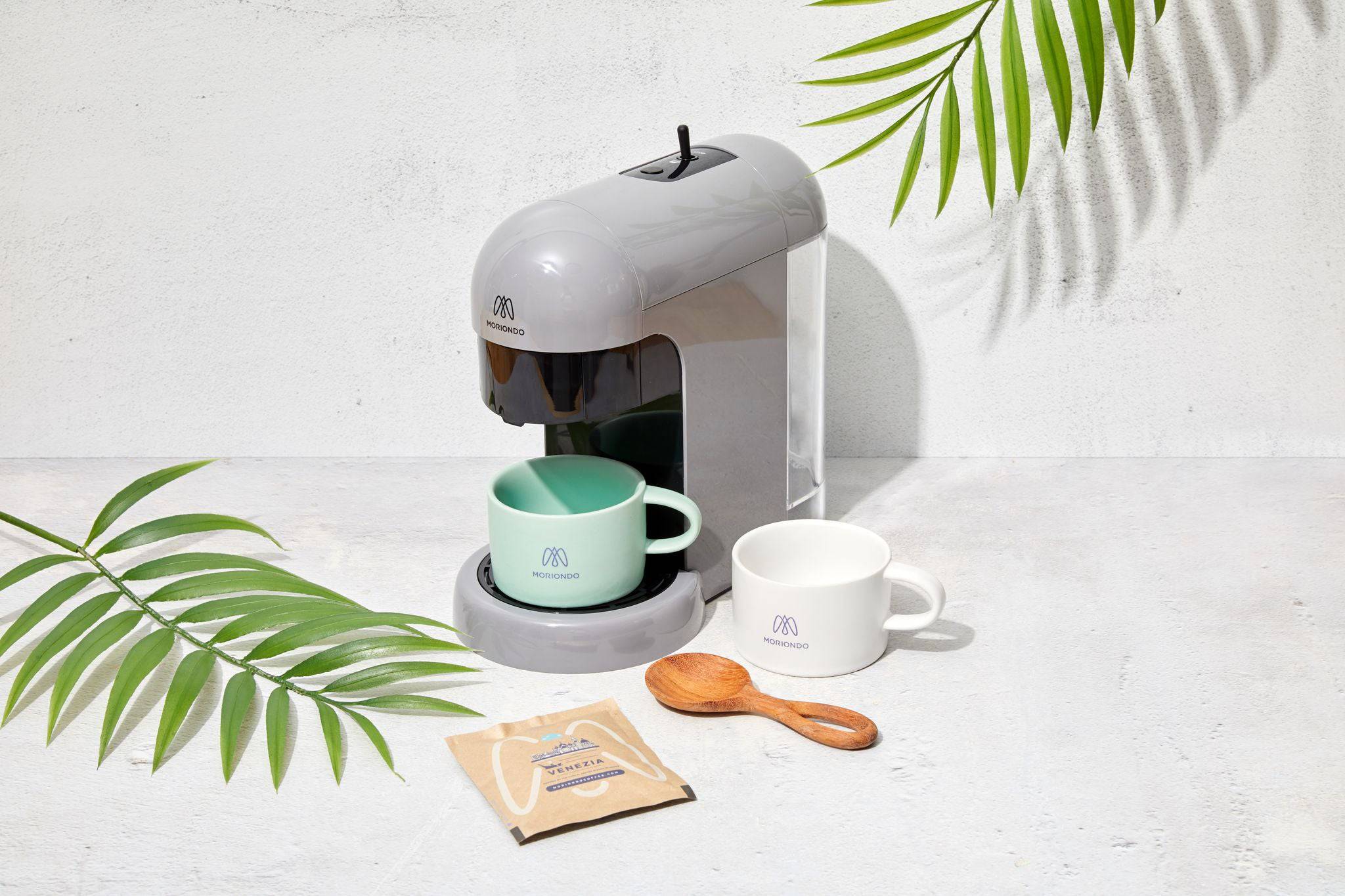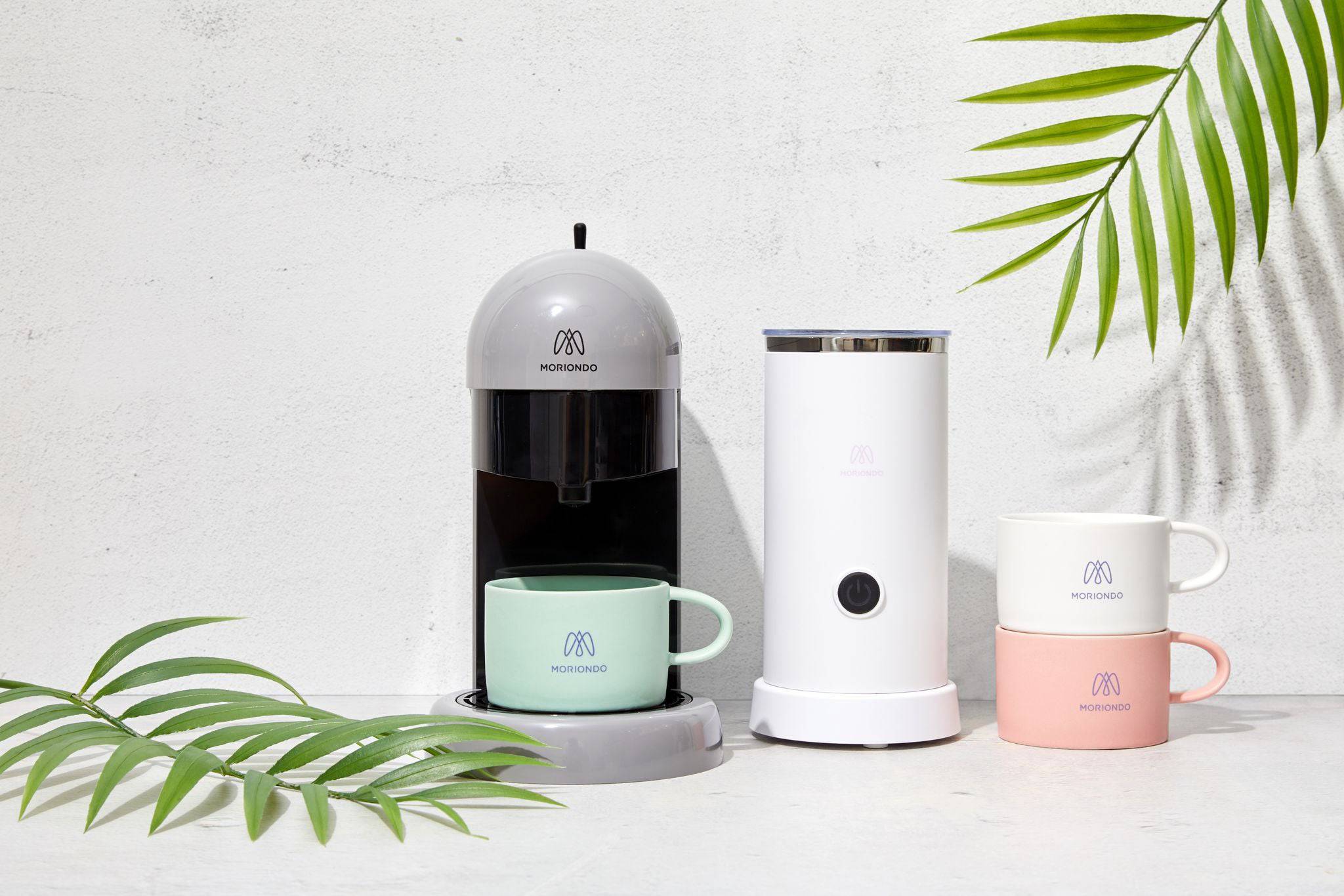Coffee and Cholesterol
Table of Contents
If you are someone who lives under the condition of high cholesterol or has a genetic history of the same condition, you're likely tuned in to the foods and beverages you need to avoid to maintain low-density lipoprotein (LPL).
However, many people wonder about how the rules apply to boiled coffee consumption.
Coffee represents one of the most common beverages consumed across the globe, and it is constantly written about in media news outlets for its numerous health benefits.
In this guide we're going to explain the connection between coffee and cholesterol levels.
Many studies that compare health and coffee beans demonstrate that moderate portions (less than 4 cups per day) are good for general health, while exceeding this level means a greater chance of heart disease and death.
Although your typical brewed coffee beans do not contain any trace of cholesterol, there are two natural oils inside, known as kahweol and cafestol, that are capable of raising the levels.
Furthermore, studies have demonstrated that older drinkers have excess cholesterol in their bodies.
Yet, until recently, not enough research existed for younger people.
Using Filtered Coffee

In 2018, a research study tracked coffee consumption in individuals between the ages of 18 to 24 in a week, then compared it to their levels of cholesterol. These studies concluded that the more drinks the participants consumed in the espresso category, the higher levels of cholesterol they had.
By definition, espresso is brewed by shooting hot water directly into the grounds instead of slowly dripping through a standard filter. This results in coffee consumption with significantly higher doses of the two aforementioned compounds known to raise cholesterol. Other similar strategies in which water and grinds came into direct contact were Turkish coffee, pour-overs, French-presses, and boiled coffee.
Conversely, filters such as the types used in your house or local diner lower the concentration of cholesterol-spiking oils. Therefore, the researchers determined that their results were meaningful, given the high popularity of coffee. Experts now recommend that those individuals who desire to prevent or lower high cholesterol consume only filtered coffee.
Using Decaf Coffee

The percentage of caffeine that is considered safe for cholesterol levels by the FDA has a maximum daily threshold of four cups. Yet, there are certain people more sensitive to caffeine's effects, with the likelihood of experiencing some if not all of the following symptoms:
-
anxiety
-
fast heart rate
-
feeling unhappy
-
headaches
-
insomnia
-
jitters
-
nausea
There is enough research out there to suggest that caffeinated coffee has a higher likelihood to raise cholesterol levels than decaf. While a direct connection has yet to be proven, switching to this alternative may be beneficial for those concerned about their cholesterol levels.
Ingredients to avoid

Although research is quite mixed on whether coffee alone can raise levels of cholesterol, studies already prove that saturated fat increases them. This can be found in many of the ingredients we put in our coffee each day. Below are several examples to enjoy once in a blue moon or completely avoid.
-
Half-n-half / cream: When you drink coffee, the common lighteners composed of whole-fat milk contain high concentrations of saturated fat, which is known to increase LDL cholesterol levels. There is a more friendly choice that includes low-fat options, nonfat options, and even plant-based milk without any saturated fat.
-
Sweet drinks: The sugar concoctions with lots of froth that are so incredibly common at shops are nearly identical to milkshakes in instant coffee. Outside of containing lots of sugar, they may contain ingredients with high levels of saturated fat. Always consider these dangerous ingredients before indulging.
-
Bulletproofing: For those who are fans of ketogenic diets, bulletproof coffee is a substitute for the standard breakfast that calls for adding coconut oil and butter into your daily joe. Unfortunately, both of these have high concentrations of saturated fat, with several case reports of those who regularly drink bulletproof noticing sharp increases in their LDL cholesterol levels.
Drug interactions
A review in 2020 from randomized controlled clinical trials discovered that french press coffee is capable of interacting with prescription drugs as a result of caffeine. It may be a good idea to check in with a doctor to understand whether any of the medications sit in this category.
Moreover, the Centers for Disease Control and Prevention (CDC) have warned against mixing coffee and other caffeinated beverages with alcohol. This could result in someone consuming more alcohol than what was originally intended and experiencing higher levels of harmful effects.
Benefits of coffee
In accordance with information issued by the American Heart Association (AHA), french press coffee offers several key benefits, including:
-
Reduced risk of Alzheimer's disease, Parkinson's disease, and Type 2 Diabetes
-
Protection from cellular damage via high concentrations of antioxidants
-
Lowered risk of death
-
Reduced risk of cardiovascular diseases in females
Furthermore, it has been noted by the AHA that caffeine from green tea, french press coffee, espresso coffee, and energy drinks are liable to:
-
Increase your energy
-
Aid in weight loss
-
Improve your mental focus
-
Elevate your mood
-
Improve athletic performance
Despite the fact that kahweol and cafestol can negatively impact cholesterol, they still offer certain health benefits. Research has suggested they may offer anticancer and anti-inflammatory properties.
Understanding cholesterol
Cholesterol is a fatty substance that plays various key roles in a healthy body. When levels of LDL cholesterol reach excess, plaque accumulates in the arteries. In the event that the plaque accumulates enough to the point that blood flow is obstructed, it becomes extremely dangerous. For instance, it can increase the risk of stroke or heart attack.
This cholesterol travels through the blood in the form of lipoprotein molecules. The blood contains two primary forms of lipoproteins. They are as follows:
-
High-density lipoprotein (HDL): Certain individuals call this "healthy" cholesterol as it helps to remove the compound from the body.
-
LDL: Certain individuals call this "unhealthy" cholesterol, as it plays a role in the buildup of plaque in the arteries.
It is essential to note that dietary cholesterol has no strong links to levels of LDL. Rather, diets that are high in trans and saturated fats increase levels of cholesterol in the blood. Yet, dietary research is ongoing.
Managing cholesterol
Lifestyle changes that are heart-healthy can aid in the management of cholesterol. According to the National Heart, Lung, and Blood Institute (NHLBI), you need to follow the below:
-
Eat a diet healthy for the heart: Your heart requires nutrients from whole grains, vegetables, and fruit, along with nuts, fish, and olive oil that contain omega-3 fatty acids. Furthermore, you should limit the intake of foods that are high in trans and saturated fat, like packaged snacks and fatty meat cuts.
-
Exercise regularly: Studies have proven that exercising regularly reduces LDL and increases HDL.
-
Stop smoking: This habit greatly increases your risk of heart disease.
-
Maintain proper weight: If a person has obesity or has high body weight, then losing up to 5% of the total can lower LDL and raise HDL levels.
-
Stress management: Research has suggested that stress negatively impacts cholesterol.
Those with high cholesterol need to consult their doctor to understand whether they require medication, as drugs can lower levels of cholesterol.
Certain people may have preexisting conditions that contribute to high levels of cholesterol. In such cases, an individual doctor can suggest different treatments or change their prescription drugs.
Takeaway
In general, it's best to enjoy coffee in moderation and understand the ingredients. Cholesterol and coffee have rules that easily mirror that of many other foods and beverages.
The dichotomy between coffee and cholesterol can depend on the way the beverage is brewed. There's some research that indicates coffee can affect someone's cholesterol differently depending on their gender. Using paper filters is helpful in minimizing the concentration of natural oils in your coffee, resulting in a drink with a reduced effect.
Those with high cholesterol may favor filtered coffee over unfiltered. When the method for brewing does not include paper filters, you will consume more oils.
If you are concerned about your levels of cholesterol, consider speaking with a licensed healthcare professional.
Good Tasting Coffee: How to Identify Coffee Flavors

In order to appreciate the different types of coffee available, it's important to cultivate an awareness of its unique characteristics. Let's take a look at the way coffee connoisseurs judge different cups of coffee.
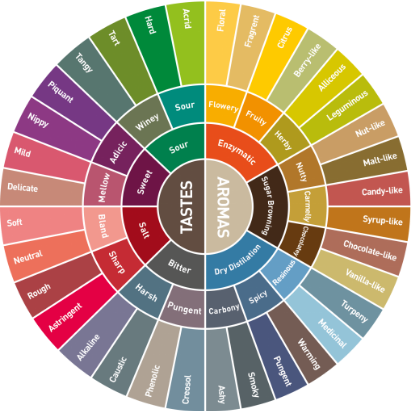
Aroma
The scent of a cup of coffee has a direct influence on how we perceive its flavor. As you drink coffee try to notice if the scent is smoky, fruity, earthy, spicy, nutty or grassy.
Acidity
One of the most defining characteristics of a cup of coffee is its acidity. This is the sharp, bright tangy quality of coffee that perks up our senses. Coffee doesn’t necessarily contain just one type of acid, either. It may contain citric acid, malic acid (fruity in flavor) or even quinic acid from stale coffee, which gives us stomach aches.
Body
This is the weight, thickness and texture of coffee in your mouth. The body of different types of coffee falls on a spectrum of light- to full-bodied viscosity (thin to thick).
Flavor
This is where comparisons come in handy and there is some overlap between aroma and flavor. Your coffee might taste bitter, sweet, savory or sour with common comparisons to chocolate, wine or fruit.
Related Posts

